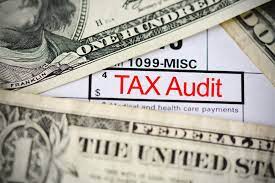A sales tax audit is a process that a business must prepare for before the deadline. The main objective of this review is to verify that the business has properly reported all of its taxable sales during the audit period, and that the sales tax amount has been correctly calculated. An auditor may require that you review every single transaction or he or she may request that you submit a test period, which is typically a quarter of the year. The goal of this process is to determine the accuracy of the sales tax returns and to eliminate any documentation issues.
An initial information and document request (IDR) requires the following documentation for the audit period: federal and NYS income tax returns; sales tax returns; general ledgers; sales invoices; exemption documentation; and corporate books. For an individual taxpayer, the IDR also requests bank statements, corporate books, depreciation schedules, lease/rental agreements, and inventory. The process for conducting a sales-tax audit can take months, so make sure to have a designated point person for all communications.
In an initial IDR, the tax authority will request the following documentation for the audit period: sales tax returns; federal and NYS income tax returns; and general ledger and journal. It will also request the following documents: sales invoices; and exemption documentation. An initial IDR may also include a chart of accounts and a corporate book. The initial IDR may also request bank statements, depreciation schedules, and lease/rental agreements.
If you are facing a sales tax audit, it’s imperative to follow all rules and procedures regarding the process. First, you should understand the audit’s purpose. It is to determine if the correct tax rate has been charged to the customer. An unreconciled discrepancy will be treated as unreported taxable sales. And, in the end, you can avoid the headache of an unpleasant surprise when the auditors find out the true extent of your company’s tax liability.
If you have a lot of different types of sales, a sales tax audit may be the right choice for your business. The auditor will review all of your taxable and exempt sales transactions to ensure that you’re charging the correct tax rate. If the audit involves an audit that has been conducted on your company, make sure that you provide all of the required documentation in the right way. Then, you’ll be prepared to answer the auditors’ questions and make a decision.
A sales tax audit is a serious and important step for a business. Before a tax auditor arrives, you should be ready to respond to all questions. You should have one internal sales tax auditor for your business. The auditor will coordinate all responses and be the central point of contact between the two departments. He or she should be a point of contact between the two of you. The point person should be the last person to contact the auditors, as this will help you understand the process better

